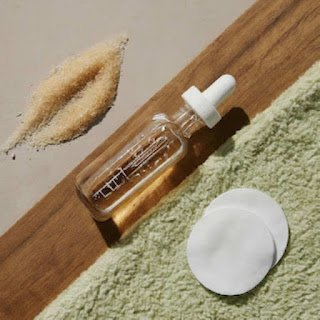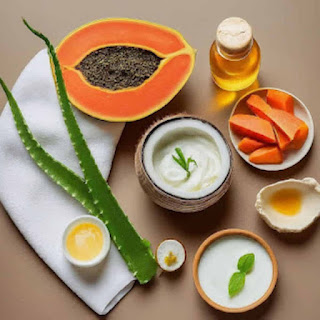Best Healthy Skin Care Tips for a Healthy and Glowing Face
Introduction to Healthy Skin Care
Having healthy, glowing skin is not just a matter of beauty; it's a sign of good health and well-being. Proper Healthy Skin Care is essential in maintaining the skin's integrity and enhancing its appearance. Whether you have a proper routine or are just going to start, understanding the importance of skin care is the first step toward achieving a radiant complexion.
Understanding Your Skin Type
Before knowing healthy skin care tips, it's crucial to know your skin type. Different skin types have different needs, and using the wrong products can lead to various skin issues.
Oily Skin:
Characterized by excess sebum production, oily skin often looks shiny and is prone to acne and enlarged pores. Products for oily skin should help control oil without over-drying.
Dry Skin:
This type lacks moisture and often feels tight or rough. It's important to use hydrating and nourishing products to restore the skin's moisture balance.
Combination Skin:
As most of us know, it's a mix of oily and dry areas on the skin, typically having an oily T-zone (forehead, nose, chin) and dry cheeks. Combination skin requires a balanced approach to address both concerns.
Sensitive Skin:
Easily irritated, sensitive skin can react to various factors, including products, weather, and stress. Gentle, hypoallergenic skin products are the option for such skin types.
Daily Healthy Skin Care Routine
A consistent daily skincare routine is key to maintaining healthy skin. This routine should be fit for your skin type and lifestyle.
Morning Routine:
Start with a gentle cleanser to remove overnight impurities. Follow with a toner to balance the skin's pH, a serum to address specific concerns (e.g., hydration, brightening), and a moisturizer to lock in moisture. Finally, use a broad-spectrum SPF to protect from UV damage.
Evening Routine:
Begin with a thorough cleanse to remove makeup, dirt, and pollutants. Use a toner to refresh the skin, followed by targeted treatments like retinol or peptides. Use a night cream to nourish and revitalize the skin before going to sleep.
Cleansing Techniques
Proper cleansing is fundamental for clear, healthy skin. It's not just about washing your face; it's about doing it correctly.
Choosing the Right Cleanser:
Select a cleanser suited to your skin type. Gel cleansers work well for oily skin, while cream cleansers are ideal for dry skin. Look for gentle, sulfate-free formulas to avoid stripping the skin of its natural oils.
How to Properly Cleanse Your Face:
Use lukewarm water to avoid irritation. Apply the cleanser in circular motions, covering all areas of your face. Wash off and gently dry your skin with a clean towel by patting.
Exfoliation
Exfoliation helps wipe off dead skin cells, promoting a smoother, glowing, and brighter skin complexion. However, it's important to exfoliate correctly to avoid damage.
Benefits of Exfoliation:
Regular exfoliation can improve skin texture, unclog pores, and enhance the effectiveness of other skin care products.
Types of Exfoliants:
Physical exfoliants contain small particles that manually slough off dead skin cells. Chemical exfoliants use acids like AHA and BHA to dissolve dead skin cells.
How Often to Exfoliate:
Depending on your skin type, exfoliate 1-3 times a week. Excessive exfoliating can cause irritation and skin harm.
Moisturizing
Keeping your skin hydrated is essential for a healthy glow. Moisturizers aid in maintaining the skin's function as a barrier and stop moisture loss.
Finding the Right Moisturizer:
For oily skin, choose a lightweight, non-comedogenic moisturizer. For dry skin, look for richer, hydrating formulas. Combination skin can benefit from a gel-cream moisturizer, while sensitive skin should opt for fragrance-free, soothing products.
How to Apply Moisturizer:
Apply moisturizer to damp skin to lock in moisture. Use gentle, upward strokes to avoid pulling on the skin.
Sun Protection
Sun protection is an important element in any skincare routine. UV radiation can cause premature aging, and sunburn, and increase the risk of skin cancer.
Importance of SPF:
Daily use of SPF helps protect against harmful UV rays, preventing damage and maintaining skin health.
Choosing the Right Sunscreen:
Use a broad-spectrum sunscreen with at least SPF 30. Look for non-comedogenic formulas that won't clog pores, and reapply every two hours when exposed to the sun.
Hydration
Hydration is key to healthy, glowing skin. Drinking plenty of water and using hydrating products can make a significant difference.
Drinking Water for Healthy Skin:
Staying hydrated from within helps maintain skin elasticity and flush out toxins. Drink at least 8 glasses of water daily.
Hydrating Products:
Incorporate products with hydrating ingredients like hyaluronic acid, glycerin, and aloe vera to keep your skin plump and moisturized.
Healthy Diet for Glowing Skin
Whatever you eat, is going to have an impact on your skin. A balanced diet rich in nutrients supports overall skin health.
Foods to Eat:
Incorporate antioxidant-rich fruits and vegetables, omega-3 fatty acids from fish, nuts, and seeds, and vitamins like A, C, and E for radiant skin.
Foods to Avoid:
Limit intake of processed foods, sugar, and dairy, which can contribute to inflammation and breakouts.
Importance of Sleep
Quality sleep is essential for skin health. While you sleep, your skin undergoes repair and regeneration processes.
How Sleep Affects Your Skin:
Lack of sleep can lead to dark circles, dull skin, and an increase in fine lines. Aim for 7-9 hours of sleep per night.
Tips for Better Sleep:
Establish a bedtime routine, avoid screens before bed, and create a comfortable sleep environment to promote restful sleep.
Managing Stress
Stress can take a toll on your skin, leading to issues like acne, eczema, and psoriasis.
Stress and Skin Health:
Stress triggers the release of cortisol, which can exacerbate skin problems. Stress management is important to keep your skin healthy.
Stress-Relief Techniques:
Practice mindfulness, meditation, yoga, and regular exercise to reduce stress levels and improve overall well-being.
Natural Skin Care Remedies
Natural remedies can be a great addition to your skincare routine. They are often gentle and free from harsh chemicals.
DIY Homemade Face Masks:
Create masks using ingredients like honey, yogurt, and oatmeal to nourish and soothe the skin.
Some DIY Homemade Face Mask Ideas are:
Papaya Honey Mask
Papaya Yogurt Mask
Natural Ingredients to Use:
Incorporate ingredients like aloe vera, coconut oil, and green tea, known for their skin-beneficial properties.
Professional Skin Care Treatments
Sometimes, professional treatments are necessary to address specific skin concerns.
When to See a Dermatologist:
Consult a dermatologist if you have persistent skin issues, such as severe acne, unexplained rashes, or signs of skin aging.
Popular Professional Treatments:
Consider treatments like chemical peels, microdermabrasion, and laser therapy to enhance your skin's appearance.
Skin Care Myths Debunked
There are many misconceptions about skin care. It's important to rely on evidence-based information.
Common Misconceptions:
Myths like "drinking more water will clear your skin" and "natural products are always better" can be misleading.
Evidence-Based Facts:
Rely on dermatologists' advice and scientific research to guide your skin care choices.
Seasonal Healthy Skin Care Tips
Your skin's needs can change with the seasons. Adjust your routine accordingly to maintain healthy skin year-round.
Summer Skin Care:
Focus on sun protection, lightweight moisturizers, and hydrating products to combat heat and humidity.
Winter Skin Care:
Use richer moisturizers, avoid hot showers, and incorporate hydrating masks to address dryness and cold weather effects.
Anti-Aging Skin Care
Preventative measures and effective products can help maintain youthful skin.
Preventative Measures:
Use sunscreen daily, avoid smoking, and follow a healthy lifestyle to prevent premature aging.
Effective Anti-Aging Products:
Look for products containing retinoids, peptides, and antioxidants to combat signs of aging.
Special Considerations for Different Ages
Skin care needs to evolve as you age. Tailor your routine to address these changes.
Skin Care in Your 20s:
Focus on prevention, using sunscreen and gentle products to maintain youthful skin.
Skin Care in Your 30s:
Incorporate anti-aging ingredients like retinoids and antioxidants to address early signs of aging.
Skin Care in Your 40s and Beyond:
Use richer, hydrating products and consider professional treatments to maintain skin health and elasticity.
Importance of Consistency
Be Consistent is to achieve healthy and Glowing skin.
Sticking to Your Routine:
Follow your skincare routine diligently to see long-term results.
Patience and Persistence:
Understand that skin care is a gradual process, and give products time to work.
FAQs about Healthy Skin Care
How often should I wash my face?
Washing your face twice a day, morning and night, is generally recommended. However, if you have particularly dry or sensitive skin, once a day might suffice.
Can diet really affect my skin?
Yes, a balanced diet rich in vitamins, minerals, and antioxidants can significantly improve your skin's health and appearance.
What’s the best way to treat acne?
The best way to treat acne varies from person to person. It often involves a combination of topical treatments, lifestyle changes, and in some cases, professional help.
How do I choose the right skin care products?
Understand your skin type and specific concerns. Look for products with beneficial ingredients and avoid those with harsh chemicals or irritants.
Is it necessary to see a dermatologist?
While many skin care issues can be managed at home, seeing a dermatologist is important for persistent, severe, or unexplained skin conditions.
Conclusion
Achieving healthy, glowing skin is a journey that involves understanding your skin type, following a consistent routine, and making healthy lifestyle choices. With the right healthy skin care tips and dedication, you can enjoy radiant skin that reflects your overall health and well-being. Remember, patience and persistence are key, and it's never too late to start taking better care of your skin.
.webp)







